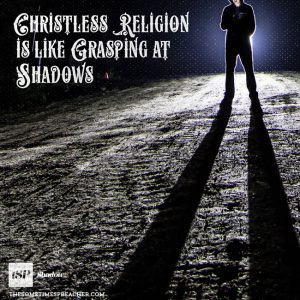Yet I hold this against you: You have forsaken the love you had at first. Consider how far you have fallen! Repent and do the things you did at first. If you do not repent, I will come to you and remove your lampstand from its place. But you have this in your favor: You hate the practices of the Nicolaitans, which I also hate.
Whoever has ears, let them hear what the Spirit says to the churches. To the one who is victorious, I will give the right to eat from the tree of life, which is in the paradise of God.
-Revelation 2:1-7
Do you remember when you first became a Christian? Or, if you’re like me and were raised in a Christian home, can you recall that time in your life when you made the faith your own? For many of us, those are the moments of the birth of new life in our souls, of freshness and forgiveness, of a passionate love for Jesus burning in our hearts. It’s the moment of first love, when God reveals himself to us with grace and clarity, and we finally understand how deeply loved we are by our Creator — that is when our love for God explodes out of our hearts and flows out into the world around us through our words and actions. We love God so much that we just can’t hide it!
Let’s be honest: It’s hard to stay in that place. It’s difficult to maintain that level of passion and emotion over the course of our lives. I told Jesus this in prayer the other day. I said, “Look, it’s hard to love you when you’re not physically present on the earth. I don’t mean that you’re hard to love, because your character and the things you’ve done for me — how can I not love you? I’m just saying that it’s difficult to maintain this love in your absence.” I’m not trying to make excuses for myself, I’m just trying to guilt Jesus into returning right now! (It’s not working.) I recognize that I was speaking purely from an emotional level (frustration, disappointment) in that prayer, and that Jesus’s absence is no excuse to not be present to the passion of our love for him. After all, he has given us the Holy Spirit to be with us, and he is always urging us back to our first love.
But the world tends to distract us from our love for Jesus. The tedium and monotony of our daily routines, the triviality of consumerism, and the banality of entertainment have a way of dulling the senses — especially our deepest feelings for our Savior. The more that our love for God is at the surface of our souls and not buried beneath the anxieties and distractions of modern life, the more we will feel a passionate love for him. I am not as passionate about God when I spend a lot of time on my phone. There’s something about that screen that can pull me away from the One I’m supposed to feel most passionately about. Love isn’t a feeling, of course, but we do feel love. We have an emotional response to love and our presence to it, and the more in touch with that love we are, the more we will feel it on an emotional level. Love is like heat, and the closer we get to it the more it triggers our spiritual senses.
Love is like heat, and the closer we get to it the more it triggers our spiritual senses.
What Jesus is after from the Church in Ephesus, and from us, is that they become present to the passion of their love for him. It’s not that they don’t love; it’s that they have grown cold to love. Their souls have become distant from their first love, and a great chasm of fear and rule-keeping has opened up between them and Jesus. They didn’t fall off the path, necessarily, they just forgot why they were walking on it and who they were following.



